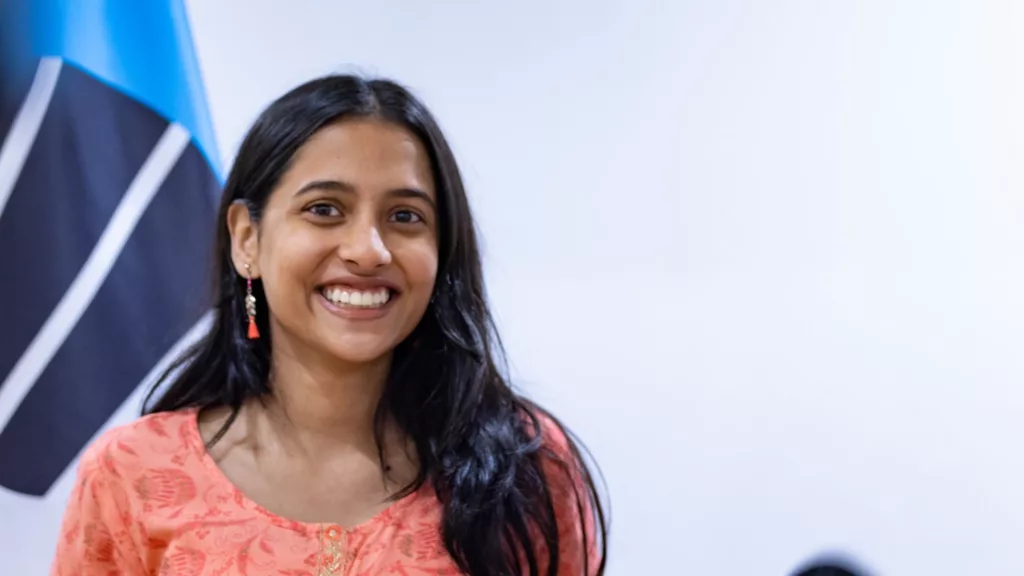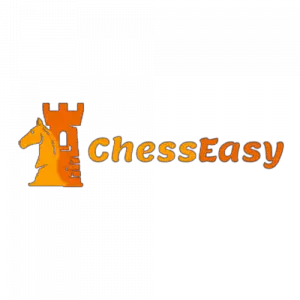
Divya Deshmukh has taken the chess world by storm with her incredible tactical abilities and lightning-fast calculations. As India’s rising chess star continues to break barriers and achieve remarkable victories against seasoned grandmasters, many fans wonder about the intellectual prowess behind her success.
While Divya Deshmukh’s exact IQ has never been officially disclosed, chess experts and analysts estimate her IQ to be around 140 based on her exceptional pattern recognition, strategic depth, and rapid problem-solving abilities demonstrated in high-level competitions. This places her in the highly gifted range, similar to other chess prodigies who have achieved grandmaster status at young ages.
In this article, we’ll explore what makes Divya’s intellectual abilities so remarkable, examine how her IQ compares to other chess legends, and discover the unique qualities that set her apart from her contemporaries. Let’s dive into the fascinating world of chess intelligence!
Divya Deshmukh’s Intellectual Prowess
Divya’s estimated IQ of 140 becomes evident when you observe her gameplay patterns and decision-making speed. During her breakthrough performances in international tournaments, she consistently demonstrated the ability to calculate complex variations several moves ahead while maintaining perfect accuracy under time pressure.
Her tactical vision stands out particularly in endgame positions where she finds winning moves that even experienced grandmasters miss. This level of pattern recognition typically indicates superior spatial intelligence and working memory – key components of high IQ scores.
Chess analysts have noted her exceptional ability to transition between different types of positions seamlessly. Whether it’s a sharp tactical battle or a quiet positional grind, Divya adapts her playing style with remarkable flexibility.
The speed at which she processes information during rapid and blitz games further supports the IQ estimate. Players with lower cognitive abilities typically struggle when time controls become shorter, but Divya actually seems to thrive in faster formats.
Key Indicators of High Intelligence in Divya’s Play:
- Pattern Recognition: Instantly identifies complex tactical motifs
- Memory Recall: Demonstrates extensive opening preparation and endgame knowledge
- Calculation Speed: Processes multiple variations simultaneously under time pressure
- Strategic Planning: Formulates long-term plans while handling immediate threats
- Adaptability: Adjusts playing style based on opponent’s strengths and weaknesses
Comparing IQ Levels with Chess Legends
When we place Divya’s estimated IQ of 140 alongside other chess champions, interesting patterns emerge. This intellectual capacity aligns perfectly with what we see among the world’s top players, though each expresses their intelligence differently on the board.
Looking at top chess players with the highest IQs, we find that most elite players fall within the 130-180 range. Divya’s estimated 140 places her comfortably within this elite group, suggesting she possesses the cognitive foundation necessary for world-class chess.
Bobby Fischer’s IQ was famously estimated around 180, which explains his unparalleled chess intuition and ability to find moves that seemed impossible to other masters. While Divya’s estimated IQ is lower, her practical strength and tournament results demonstrate that raw IQ isn’t the only factor determining chess success.
Magnus Carlsen’s IQ is estimated around 190, contributing to his incredible endgame technique and positional understanding. Interestingly, Divya shows similar endgame prowess despite the IQ difference, highlighting how dedication and proper training can bridge intellectual gaps.
IQ Comparison Table:
| Player | Estimated IQ | Key Strength |
|---|---|---|
| Magnus Carlsen | 190 | Endgame mastery, positional play |
| Bobby Fischer | 180 | Tactical brilliance, opening innovation |
| Garry Kasparov | 190 | Dynamic play, preparation depth |
| Divya Deshmukh | 140 | Rapid calculation, tactical vision |
Unique Cognitive Advantages
What makes Divya’s intellectual profile particularly fascinating is how she maximizes her cognitive abilities through specific mental approaches. Unlike players who rely purely on calculation or intuition, she combines both elements effectively.
Her working memory appears exceptionally strong, allowing her to keep track of multiple tactical themes simultaneously. During complex middlegame positions, she can monitor various pieces and their potential coordination while calculating specific variations.
Divya demonstrates superior emotional intelligence on the board, remaining calm under pressure and making rational decisions even in difficult positions. This psychological stability amplifies her natural intellectual abilities, creating a powerful combination.
Her learning speed sets her apart from many contemporaries. New opening systems and tactical patterns become part of her repertoire remarkably quickly, suggesting high fluid intelligence and excellent memory consolidation.
The way she handles time management during games indicates strong executive function – another component of high IQ. She allocates thinking time efficiently, spending more on critical positions while playing routine moves quickly.
Mental Training and IQ Development
Divya’s approach to chess improvement provides insights into how she’s developed her intellectual capabilities. Rather than relying solely on natural talent, she’s implemented systematic training methods that enhance cognitive performance.
Her daily routine includes tactical puzzles that challenge pattern recognition and calculation speed. This constant mental exercise likely contributed to strengthening her working memory and processing speed over time.
She studies games from various eras and styles, exposing her mind to different types of chess thinking. This diverse exposure helps develop cognitive flexibility – the ability to switch between different conceptual frameworks quickly.
Divya practices visualization exercises, playing blindfold games and analyzing positions without moving pieces. This training strengthens spatial intelligence and mental representation abilities, both crucial for high-level chess performance.
Her preparation method involves deep analysis of specific positions rather than memorizing long theoretical lines. This approach develops critical thinking skills and enhances understanding of chess principles.
Training Methods That Boost Chess IQ:
- Tactical Pattern Recognition: Daily puzzle solving for 2-3 hours
- Endgame Studies: Systematic learning of theoretical positions
- Blindfold Visualization: Playing games without seeing the board
- Opening Principles: Understanding ideas rather than memorizing moves
- Position Analysis: Deep investigation of master games
Performance Under Pressure
One of the most impressive aspects of Divya’s intellectual abilities is how they function under extreme competitive pressure. Tournament chess creates unique psychological demands that can impair cognitive performance, but she consistently maintains high-level thinking quality.
During crucial games, when stakes are highest, Divya’s calculation accuracy remains remarkably stable. This suggests strong stress management capabilities and the ability to compartmentalize emotions while problem-solving.
Her time management under pressure indicates superior executive function. Even with seconds remaining on the clock, she makes principled decisions rather than panicking or playing randomly.
The consistency of her performance across different tournament formats – classical, rapid, and blitz – demonstrates cognitive flexibility. Many players excel in one time control but struggle in others, yet Divya adapts seamlessly.
Her ability to bounce back from losses shows emotional resilience, another component of practical intelligence. Rather than dwelling on mistakes, she analyzes them objectively and applies lessons to future games.
Cognitive Processing Speed
Divya’s rapid decision-making ability stands out as one of her most impressive intellectual traits. In positions where other players might spend 20-30 minutes calculating, she often finds the correct move within 5-10 minutes without sacrificing accuracy.
This processing speed advantage becomes particularly evident in tactical positions requiring precise calculation. She can evaluate multiple candidate moves simultaneously, eliminating inferior options quickly while focusing computational resources on promising lines.
Her pattern recognition operates at an almost intuitive level, allowing her to spot familiar motifs instantly. This automatic recognition frees up cognitive resources for deeper calculation and strategic planning.
During post-game analysis, Divya often mentions seeing key ideas “immediately” upon reaching certain positions. This instant recognition suggests highly developed chess-specific intelligence that complements her general cognitive abilities.
The speed-accuracy trade-off in her play is remarkably well-calibrated. She plays quickly when positions are straightforward but slows down appropriately when complexity demands deeper analysis.
Strategic Vision and Planning
Beyond tactical calculation, Divya demonstrates sophisticated strategic understanding that reflects high-level abstract thinking. Her ability to formulate long-term plans while handling immediate tactical concerns showcases advanced cognitive multitasking.
She excels at identifying imbalances in positions and creating plans to exploit them. This requires the ability to evaluate multiple factors simultaneously – pawn structure, piece activity, king safety, and time factors.
Her positional sacrifices often surprise opponents because they’re based on deep strategic concepts rather than concrete calculation. This intuitive understanding of chess principles indicates pattern recognition at a very high level.
Divya adapts her strategic approach based on opponent analysis, showing psychological insight combined with chess understanding. She identifies opponents’ weaknesses and tailors her playing style accordingly.
Her endgame technique reveals sophisticated planning abilities, as she can visualize winning procedures many moves in advance. This forward-thinking capability is strongly correlated with high fluid intelligence.
Pattern Recognition Mastery
The sophistication of Divya’s pattern recognition abilities provides clear evidence of her high intellectual capacity. She identifies complex tactical motifs that less experienced players miss entirely, even when given unlimited time to analyze.
Her opening repertoire demonstrates pattern mastery across multiple systems. Rather than memorizing moves mechanically, she understands the underlying patterns and can apply them in new positions.
During middlegame play, she recognizes when positions are transforming from one type to another – tactical to positional, closed to open, or attacking to endgame. This meta-pattern recognition indicates advanced chess intelligence.
Her ability to spot opponent mistakes quickly suggests highly tuned error-detection systems. She notices when opponents deviate from optimal play and capitalizes on these opportunities efficiently.
The transfer of patterns between different games and positions shows flexible thinking. Divya applies tactical motifs learned in one context to completely different situations, demonstrating cognitive versatility.
Final Thoughts
Divya Deshmukh’s estimated IQ of 140 represents just one facet of her remarkable chess talent, but it provides the cognitive foundation for her exceptional achievements. Her intellectual abilities manifest through rapid calculation, sophisticated pattern recognition, and strategic depth that rivals established grandmasters.
What makes Divya truly special isn’t just her high IQ, but how she applies her intellectual gifts through systematic training and competitive experience. She demonstrates that while natural intelligence provides advantages, maximizing cognitive potential requires dedicated effort and smart preparation methods.
As she continues developing her chess career, Divya’s combination of high intelligence, emotional stability, and work ethic positions her for even greater achievements. Her estimated IQ of 140 places her among the cognitively gifted, but her practical chess strength suggests she’s optimizing every aspect of her intellectual capacity for competitive success.
